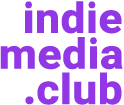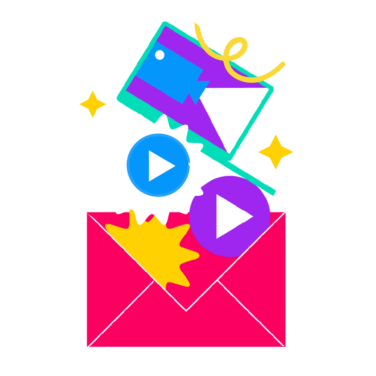Welcome to the digital era, where the power of words is no longer confined within the pages of a book. Online publishing has revolutionized the way we consume information and express ourselves, opening up a world of endless possibilities for writers and readers alike.
If you've ever wondered what online publishing truly entails or how it can enhance your writing journey, you've come to the right place. In this comprehensive guide, we'll unravel the mysteries of online publishing and digital media, explore its various forms, and provide you with real-life examples that will inspire your own creative endeavors.
Introduction to Online Publishing
The internet has opened up a world of opportunity when it comes to publishing. No longer do you need to go through the traditional channels of print media in order to get your work out there. With online publishing, you can self-publish and reach a global audience with ease.
There are a few things you should keep in mind when you're getting started with online publishing, though. First and foremost, you'll need to make sure that your work is high-quality and edited thoroughly before you put it out there. Because anyone can publish online, there's a lot of low-quality content out there, so you'll need to make sure yours stands out from the rest.
You'll also need to choose the right platform for your work. There are many different options available, so take some time to research which one will be the best fit for you and your goals. Once you've found the right platform, be sure to promote your work widely so that people can actually find and read it!
With these tips in mind, you're well on your way to becoming an online publisher. So what are you waiting for? Start writing and get your work out there for the world to see!
What Is Online Publishing?
If you’re reading this, chances are you’re familiar with at least some basic forms of online publishing. But what is online publishing, exactly?
In the most general sense, online publishing simply refers to any kind of content that’s published and distributed on the internet. This could include anything from blog posts and articles to video content creation and infographics.
But while the definition of online publishing is fairly straightforward, there’s a lot more to it than meets the eye (like: what digital publishing platforms to use). In this complete guide, we’ll take a closer look at everything you need to know about online publishing, including:
- Benefits of online publishing
- Types of online publishing
- Examples of online publishing
- Misconceptions about online publishing
- Tips for success in online publishing
By the end of this article, you should have a firm understanding of what online publishing is and how it can be used to reach your target audience. So let’s get started!
Benefits of Online Publishing
There are many benefits of online publishing, including:
- Reach a global audience: Digital publications will find that they can reach readers all over the world with just a few clicks.
- Cost-effective: There are no printing or distribution costs associated with online publishing, so it can be a very cost-effective way to get your work out there.
- Immediate feedback: Readers can leave comments and feedback on your work almost immediately, which can be extremely valuable for getting constructive criticism and improving future work.
- Increased visibility: E-publishing can help increase the visibility of your work, which can lead to more readers and followers. Folks can find you easily with a wifi connection, even using their smartphone, laptops, or e-reader to access your published content.
- Greater control: With online publishing, you have complete control over how your work is presented and distributed, so you can make sure it reaches the right audience.
- Monetization: There are plenty of ways to monetize your content, like serving ads on your page to readers, subscriptions-based business models, affiliate marketing links, or sponsored content.
Types of Content for Online Publishing
There are many different types of content that can be published online, from blog posts and articles to eBooks and audio files. The best way to determine what type of content will work best for your online publication is to consider your audience and what they are looking for. Here are some popular types of content for online publishing:
Blog Posts: Blog posts are a great way to share your thoughts and ideas with the world. They can be about any topic you like, and you can easily incorporate images, videos, and links into your post to make it more engaging.
Articles: Articles are similar to blog posts, but they tend to be more informative in nature. If you have expertise on a particular subject, writing articles can be a great way to share your knowledge with others.
Digital Magazines: Digital or online magazines generally follow the format you would expect from a traditional, in-print magazine…only, they are entirely online. An example would be The Ecclesiestical Review, an arts and culture magazine.
eBooks: eBooks are a great way to share longer pieces of writing with your audience. They can be downloaded and read on various devices, increasing functionality and convenience for busy people who want to learn more about a certain topic.
Audio Files: Audio files are another popular type of content for online publishing. You can create podcasts or simply record yourself talking about a particular subject. This is a great option for people who prefer to listen to information instead of reading it.
Interactive Content: This may include something simple like the ability to “zoom in/out” on a product photo but it can also go more in-depth with multimedia elements. Think: reader instigated animations, parallax scrolling, or embedded tutorials/wizards.
Examples of Online Publishing
There are a number of different ways that you can publish online, and the method that you choose will depend on your specific goals and needs. Here are some common examples of online publishing:
Blogs: A blog is a personal website or web diary where you can share your thoughts and ideas with the world. You can set up a blog for free using platforms like WordPress or Blogger.
Podcasts: A podcast is audio content usually published on third-party platforms like Spotify or Apple Podcasts. Podcasts are great because they can be collaborative; you can invite guests and experts to join you in discussions.
Social media: Social media platforms like Facebook, Twitter, and Instagram are great ways to share your content with a large audience. You can use social media to promote your blog posts, articles, or other forms of content.
E-commerce: If you sell products or services online, then you’re already engaged in e-commerce publishing for retailers. This type of publishing involves creating product pages, catalogs, descriptions, and other forms of content that help promote and sell your products or services.
Press releases: Press releases are short announcements that are often used to promote events or product launches. They can be published on your website or distributed to news outlets and other websites in an effort to generate publicity for your business.
Apps: You may decide to design and promote your own mobile app, whatever that might look like for your unique product/service. The app then becomes your published content and you would manage and promote it accordingly.
Common Misconceptions About Online Publishing
There are many myths and misconceptions about digital publishing, which can make it seem like a daunting task. However, with a little research and understanding, online publishing can be a great way to get your work out there. Here are some of the most common misconceptions about online publishing:
1. Online publishing is only for big companies or established authors.
This is simply not true! Anyone can publish their work online, regardless of their size or experience. In fact, many small businesses and independent authors use online publishing to reach a wider audience.
2. You need to be a tech expert to publish online.
Again, this is not the case. While you will need to have some basic knowledge of technology, you don't need to be an expert. There are plenty of user-friendly platforms and tools available that make online publishing easy and accessible for everyone.
3. Online publishing is expensive.
While there are some costs associated with online publishing, it doesn't have to be expensive. There are many free or low-cost platforms and tools available, so you can keep your costs down while still getting your work out there.
4. Online publishing takes a lot of time and effort.
Like anything worth doing, online publishing does take some time and effort. However, there are ways to streamline the process so it doesn't have to be overly time-consuming or difficult. With some planning and preparation, you can make online publishing
Tips for Succeeding in Online Publishing
If you're thinking about getting into online publishing, or you're already in the business but looking to up your game, here are some tips to help you succeed:
1. Know your audience. This is important for everyone, including “traditional publishing,” but it's especially crucial in online publishing. Who are you writing for? What do they want to read? How can you keep them engaged? Keep these questions in mind as you create content, and you'll be more likely to produce material that resonates with your readers.
2. Be strategic about where you publish. There are a lot of different places to publish digital content, from blogs to social media to article directories. Where you publish should be dictated by where your audience is hanging out. So if you're targeting millennials, for example, focus on platforms like Snapchat and Instagram. If your target market is small businesses, look to LinkedIn Pulse and Medium.
3. Make use of SEO best practices. One of the benefits of online publishing is that your content has the potential to reach a wide audience through search engines. But in order for that to happen, you need to make sure your content is optimized for SEO (search engine optimization). That means using key phrases throughout your text and including relevant links back to your site.
4. Have a media kit. A media kit lets potential advertisers, partners, or stakeholders understand what you bring to the table in a working relationship. It will outline your audience demographics, engagement numbers, and maybe even ad/link prices or other buy-in opportunities.
5. Promote, promote, promote! Just because you've published something doesn't mean people will automatically find it and read it. You need to actively employ an ongoing content marketing strategy if you want it to reach its full potential audience and increase reader engagement. Asking your readers to share content you’ve created is always a good start.
Need expert help selecting the right Unified Communications Software?
We’ve joined up with Crozdesk.com to give all our readers (yes, you!) access to Crozdesk’s software advisors. Just use the form below to share your needs, and they will contact you at no cost or commitment. You will then be matched and connected to a shortlist of vendors that best fit your company, and you can access exclusive software discounts!
Conclusion
Online publishing can be a great way to reach new audiences and get your writing out into the world. With the right techniques, you can build credibility and increase engagement with your readers. Whether you are just starting out in online publishing or are looking to expand an existing blog, I hope this guide has given you some useful tips on how to get started.
Don’t forget to join our growing list of subscribers over at the Indie Media Newsletter and join the club to meet movers and shakers like yourself!



